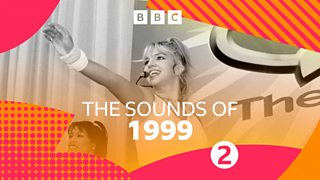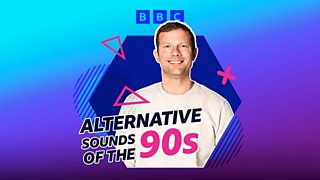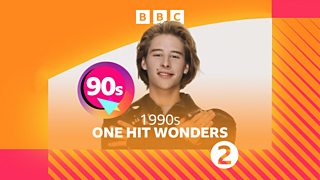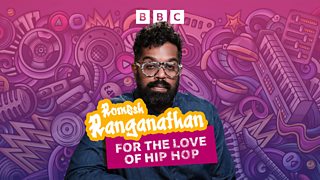From Britney to the Millennium Bug: 9 memorable moments from 1999 that will spark nostalgia
Get nostalgic for the 90s with Radio 2! Celebrate this iconic decade on ±«Óãtv Sounds with Back To Back Radio 2 90s - an always-available dose of 90s bangers.
In honour of all things 90s, scroll down to take a look back at some of 1999's most memorable moments over 20 years on – from Britney's debut to a solar eclipse to Phil and Grant Mitchell getting into perhaps the best of their many scuffles on EastEnders to Baz Luhrmann sharing some words of wisdom in his chart-topper Everybody's Free (To Wear Sunscreen).
-
![]()
Listen to the Sounds of 1999
A mix of music and news from 1999, featuring Ricky Martin, Notting Hill, The Matrix, and Pokemon.
1. We were hit by Britney Mania
Third party videos may contain adverts
Before he became pop’s premier hitmaker, Swedish songwriter/producer Max Martin cut his teeth in the 90s penning songs for a huge range of chart acts. By 1999, he had already written for the likes of *NSYNC, Gary Barlow, Bryan Adams, Robyn, and, most notably, Backstreet Boys, but it was the beginning of ‘99 that saw Martin bag his first No.1 single.
I thought the song was for teenagers, but the production was filled with a grown-up attitudeBritney Spears on ...Baby One More Time
1998 saw Martin team up with a then-emerging 16-year-old singer called Britney Spears. The song in question, ...Baby One More Time, had been shopped around various acts before Spears came onboard: TLC and Robyn had rejected it, while Simon Cowell is said to have offered Martin a sports car worth £95,000 in return for him choosing British pop group 5ive to record the song.
While she had previously envisioned herself making “Sheryl Crow music, but younger,” ...Baby One More Time, which came accompanied by a now-iconic video, propelled Britney to pop stardom, whose appeal transcended the usual teen pop market. "I remember I thought the song was for teenagers," Britney later , "but the production was filled with a grown-up attitude."
The song reached No.1 in both the UK and US in 1999, becoming the best-selling song of the year in the UK with 1.4 million copies sold in the country alone. Its album of the same name was equally a success, topping the US chart, reaching No.2 in the UK and spawning a string of hit singles: Sometimes reached UK No.3, (You Drive Me) Crazy peaked at No.5, while Born to Make You Happy earned Britney her second UK No.1. Britney not only ushered and inspired in a new era of pop, but remains a musical titan today.
2. Everyone donned special glasses for the solar eclipse
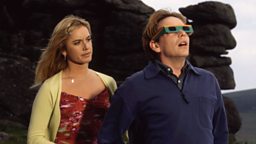
In August 1999, people up and down the country took a break from work and their daily activities to witness a once-in-a-lifetime event. Yes, we’re talking about the solar eclipse.
Cornwall was the best place to witness the eclipse
It was not only the last eclipse of the millennium, but also the first total eclipse to be visible from Britain since 1927 and a phenomenon that won’t be repeated again until 2090. Reports at the time suggested that up to 350 million people around the world witnessed the event.
There was so much anticipation for the big natural extravaganza, with everyone donning special cardboard specs or making their own pinhole camera contraption, all the while ensuring they heeded expert advice of not looking directly at the sun. In the end though, the eclipse turned out to be a bit of an anti-climax for many, with cloudy skies meaning that most parts of the British isles couldn’t get to experience the full effect of the spectacle. Cornwall, however, was your best bet if you wanted to witness the totality of the spectacle.
On EastEnders, Ian Beale had the right idea, heading down to Devon on the south-west coast to catch a glimpse of the eclipse. He ended up coming home with an engagement ring, too, after on-off girlfriend Mel (played by Tamzin Outhwaite) popped the question amid the solar blackout during an eclipse special episode of the soap. After initially hesitating, Ian eventually said yes and their turbulent relationship would be a major storyline on the show for the rest of 1999, leading to a joint Millennium wedding with Barry and Natalie on New Year's Eve 1999 - the latter episode attracting some 20 million viewers.
3. Baz Luhrmann urged us all to wear sunscreen

The origins of the song actually dated back to 1997 - and a chain email that went viral online before ‘going viral’ was even a thing. Luhrmann’s hit borrowed its lyrics (recited by Australian actor Lee Perry) from a column by American writer Mary Schmich, who wrote an imaginary commencement speech for the Chicago Tribune about the wisdom she would wish to share with the youth of the day.
The simple observations provide a profoundly useful guide for getting through lifeBaz Luhrmann on Everybody's Free (To Wear Sunscreen)
“I was walking to work along Lake Michigan and I saw this young woman out sunbathing. And I just thought, ‘I hope she’s wearing sunscreen,’” Schmich later . “It really was not super carefully considered, [it] was written in four hours.”
The viral speech was initially attributed to Kurt Vonnegut and eventually found its way to Luhrmann, who has how his assistant “showed me an email of these words… [the] simple observations and ideas seemed to provide a profoundly useful guide for getting through life... To us it didn't matter who wrote it, it made sense and struck a chord with those who had read it, that we decided to record it."
Everybody's Free (To Wear Sunscreen) bubbled away, first capturing imaginations in Luhrmann’s native Australia, before becoming a cult hit in the United States. It eventually went to No.1 in the UK in June 1999, topping the chart after selling around a quarter of a million copies, partly thanks to a Radio 1 Breakfast Show campaign.
4. Manchester United won the treble in Fergie Time
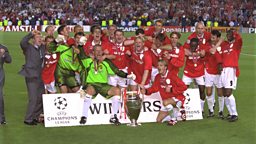
Ole Gunnar Solskjaer’s 2019 return to Old Trafford as Manchester United manager comes almost exactly 20 years on from when he first won the Red Devils fans’ hearts by snatching a famous 2-1 victory against Bayern Munich in May 1999. Solskjaer cemented his place in United folklore by sealing his team’s impressive treble of trophies - as well as the Champions League win at Barcelona’s Camp Nou, United had already secured the Premier League and FA Cup in the weeks prior.
I said 'I think this is gonna be my night' just before the game startedOle Gunnar Solskjaer
Falling a goal behind after five minutes, it almost looked like it wasn't going to happen for United. Despite his team’s tendency for leaving things late (what would become known as ‘Fergie Time’) even manager Alex Ferguson was worried, as he later : "I was just starting to adjust to losing the game. I had reminded myself to keep my dignity and accept that it wasn't going to be our year. What then happened simply stunned me."
Two stoppage time goals from substitutes Teddy Sheringham and Solskjaer later and United were champions of Europe. Despite his own manager’s doubts, Solskjaer has that he always felt his team were destined for victory. "I have a feeling, sometimes, when I think it's gonna be my night, I think I'm gonna score," he said afterwards, "so I called one of my friends back in Norway. And I told the reserve team coach as well, 'I think this is gonna be my night' just before the game started."
5. Novelty hits made their mark on the charts
Third party videos may contain adverts
While it was by no means the the birth of the novelty hit as a cultural phenomenon (after all, Barbie Girl by Aqua had topped the charts two years prior in 1997), 1999 was nonetheless a year where the charts were packed full of them.
My life changed dramatically... I became a globetrotter known on a planetary scaleLou Bega on Mambo No.5
The year’s first No.1 single was the innuendo-laden Chocolate Salty Balls by South Park character Chef, while another South Park song also reached the UK Top 10 in the final week of 1999 with Mr. Hankey The Christmas Poo missing out on the Christmas No.1 spot to Westlife’s I Have A Dream/Seasons In The Sun. Meanwhile, Dutch Eurodance troupe Vengaboys continued their chart domination that first arrived in the UK the year before, scoring two No.1 hits (Boom, Boom, Boom, Boom and We're Going to Ibiza) as well as a No.3 single - Kiss (When the Sun Don't Shine) - during 1999.
One of the year’s biggest novelty tunes came in August with Lou Bega’s Mambo No.5, which topped the UK chart and was nominated for a Grammy in the US (for Best Male Pop Vocal Performance). A Latin jive number that sampled a Cuban jazz song from 1940s, its video saw the little-known German singer flanked by Roaring Twenties-era flappers and reeling off female names. “My life changed dramatically, of course. I was a struggling songwriter barely making it before, and after I became a globetrotter known on a planetary scale,” Bega in 2014. “Since family names weren’t said to the public, no one felt compromised or betrayed. No child support claims have reached me.”
Perhaps the most bizarre novelty hit of the year, however, was a song about a blue man who lived in a blue house and drove a blue sports car. It was, of course, Eiffel 65's Blue (Da Ba Dee), a surprise Eurodance hit written by a Turin trio in just two hours and that managed to knock Vengaboys from the UK top spot in September 1999. Despite its seemingly nonsensical lyrics, lead singer Jeffrey Jey : "I understood that everybody had their own way of seeing things and I thought that the metaphor of a colour would be great, as if you had your own personal lens with your own personal colour that you would filter the world and everything [with]." Clearly not even novelty tunes are devoid of hidden depths.
-
![]()
Alternative Sounds of the 90s with Dermot O'Leary
Dermot O'Leary takes us back to the 90s with a hand-picked selection of alternative bangers from his favourite decade in music.
-
![]()
One Hit Wonders: 90s Special
The best One Hit Wonders and the stories behind them, with Chesney Hawkes talking about ‘The One And Only’.
-
![]()
Romesh Ranganathan's 90s Hip Hop Special
The 90s was the golden era for hip hop - imagine Romesh's excitement when Radio 2 asked him to make a special celebrating rap's greatest decade.
6. It was the start of music’s most unlikely success story
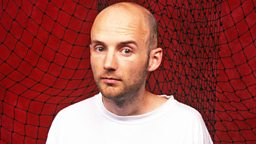
Before 1999, Moby's music may have been critically acclaimed but it had barely penetrated the mainstream. However, this was a year where everything would begin to change, with the techno producer releasing an album that would go on to become a very unexpected crossover smash.
When I was making it, I didn’t think anyone was gonna listen to itMoby on Play
"When I was making it, I didn’t think anyone was gonna listen to it," Moby admits in recent Radio 2 documentary, Moby: 20 Years of Play. "My North American record company Elektra had dropped me. My career was falling apart." In fact, Moby was convinced that Play was “going to be my last album”.
Released on 17 May 1999, Play initially debuted at No.33 on the UK Albums Chart. In the US, it fared even worse. "First show that I did on the tour for Play was in the basement of the Virgin Megastore in Union Square,” . “Literally playing music while people were waiting in line buying CDs. Maybe 40 people came.”
However, thanks to the power of word-of-mouth, plus a licensing deal that saw tracks from Play crop up in movies and adverts, the album’s popularity would steadily build over the remainder of 1999, finally re-entering the UK charts in January 2000 and reaching No.1 three months later in April 2000, spending five weeks at top spot.
Since then, Moby has well and truly defied his own prediction that Play would be his last record - he's released 11 since, won scores of awards and headlined festivals like Glastonbury. He also trod a new path when it comes to music licensing. If 1999 hadn’t gone the way it did, perhaps neither Moby’s career - nor the music industry as a whole - would be the same today.
7. There was new hope among Star Wars fans
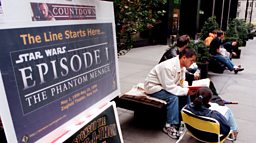
1999 also saw the return of what at the time was the biggest movie franchise in history, with a whole new generation of cinema-goers introduced to the going ons of a galaxy far, far away. Star Wars: Episode I – The Phantom Menace was the first Star Wars movie in 16 years and saw creator George Lucas return to the directors’ seat for the first time since 1977’s original film.
The Phantom Menace is one of my favourite movies, and of course Jar Jar is my favourite characterGeorge Lucas in April 2019
The film brought in over £700 million worldwide during its initial run in cinemas, the best box office figures for a Star Wars movie, and was the highest-grossing film of 1999, as well as, at the time, being the second highest-grossing film ever (behind Titanic, released two years prior). Sure, reviews may have been not the most favourable - one called called it a “pop-culture calamity”, while another described it as the “disappointment of the millennium.” Some fans may still prefer to skip it when hosting marathon watching sessions, with Jar Jar Binks a specific source of much vitriol towards The Phantom Menace.
But this doesn’t dampen the fact that The Phantom Menace was a cultural event like no other. Anticipation was so high that people camped outside cinemas for weeks in advance in order to guarantee they got the first tickets to go on sale. Some die-hards even queued to watch the film’s teaser trailer on big screens. "We plan to book out the whole theatre for the first showing, but we don't plan to go home once we've got the tickets,” one fan at the time. "Lining up is part of Star Wars fan mythology - we're here just to share in the whole excitement... it's a Star Wars Woodstock."
But if you think that’s commitment, consider the in order to see the film before it arrived in UK cinemas two months later. In fact, in 1999, it was pretty much difficult to find someone who hadn’t seen the movie and even harder yet to find somebody who didn’t have a strong opinion about it. Even French and Saunders parodied the film for their 1999 Christmas special.
One person in particular remains fond of the film after all these years though. “[The Phantom Menace] is one of my favourite movies,” Lucas told fans in April 2019, adding: “And of course Jar Jar is my favourite character.”
8. It was a blockbuster year for TV
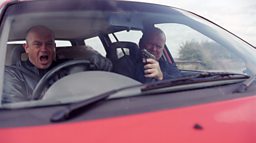
1999 was a big year for television but the biggest UK viewing figures across all channels came during a March episode of Coronation Street with 19.82 million tuning in to witness a love triangle coming to a head with Natalie Barnes confronting Ian Bentley at his wedding to Sharon Gaskell.
1999 gave us everything from The Sopranos to a classic Mitchell brothers bust-up
Perhaps an even more memorable storyline came on EastEnders, with 19.42 million watching an October episode that saw Phil Mitchell trying to kill brother Grant after finding out of his one night stand with ex-wife Kathy Beale. Following gunshots and a scuffle at the wheel of Grant's car, the pair end up in the River Thames. (Historic spoiler alert: they both survive.)
Elsewhere in the soap world, Casualty spin-off Holby City aired for the first time on ±«Óãtv One in January; but there was plenty on offer in terms of bigger budget shows too. After all, it was the year that The Sopranos first aired. The show, which delved into the personal and professional life of New Jersey mobster Tony Soprano, premiered on HBO on in January 1999, airing on E4 in the UK in July, eventually running for six seasons in total. While applauded its “incredibly absorbing scripts” and “remarkable cast”, the show has since been regarded by many as the greatest TV show of all-time, in 2010 (finishing ahead of Mad Men, The Wire and Brideshead Revisited).
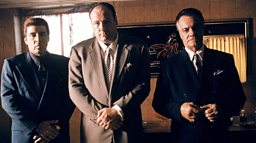
1999 also brought us The West Wing, which premiered on NBC in the US during September 1999, and - like The Sopranos, showed just how television could rival cinema in terms of its grandness, but with added breadth to its storytelling. Elsewhere, the UK got its first introduction to the cultural phenomenon of Sex and the City, with its first episode shown on Channel 4 in February 1999, having previously aired in the US the year prior.
With the likes of Game of Thrones, Fleabag and more, there’s been plenty to binge on the box recently. In fact, with bigger budgets and more A-list stars switching to the smaller screen, it’s often said that we’re in a new . Exactly when this glorious era of telly began can be debated, but it’s hard to argue that 1999 didn’t help make the medium what it is today.
9. The world successfully saw off the 'millennium bug'
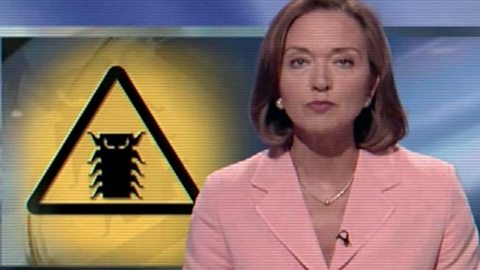
Why the 'millennium bug' didn't actually bite
In 1999, there was genuine fear that the 'millennium bug' would cause global chaos.
Finally, as the year drew to a close and the millennium approached, the world grew concerned that computer systems stored by years with two decimal digits wouldn’t be able to distinguish between the year 2000 and the year 1900. The fear, that the digital world would be plunged into chaos as the clock struck midnight on 1 January 2000 was dubbed the “Y2K problem” or “Millennium bug”, but the concept actually dated back to a 1984 book called Computers in Crisis by Jerome and Marilyn Murray, with Massachusetts programmer David Eddy later coining the phrase “Y2K” to describe such fear in an email sent in June 1995. It was feared that stock markets would crash or, worse yet, that nuclear missiles could accidentally launch.
In the end, major catastrophe was avoided. But while the general consensus may be that it was a moral panic over nothing, some have argued that chaos was only averted by the hard work of technicians and experts - an estimated $500 billion is said to have been spent worldwide fighting the bug.
Still, there were still some minor errors caused by Y2K, with of a person in the US being fined $91,250 for a video that was allegedly 100 years overdue and a baby being registered as 100 years old upon their birth in Denmark.
To immerse yourself in other years from the 90s, you can hear soundscapes of news and music dedicated to each year of the decade by listening to The Sounds of the 20th Century: The 90s
For an always-available dose of the 90s, visit Back to Back Radio 2 90s on ±«Óãtv Sounds.
Like us on , on Instagram at , or follow us on Twitter
Listen to Radio 2 on ±«Óãtv Sounds, or find out other ways you can listen.
